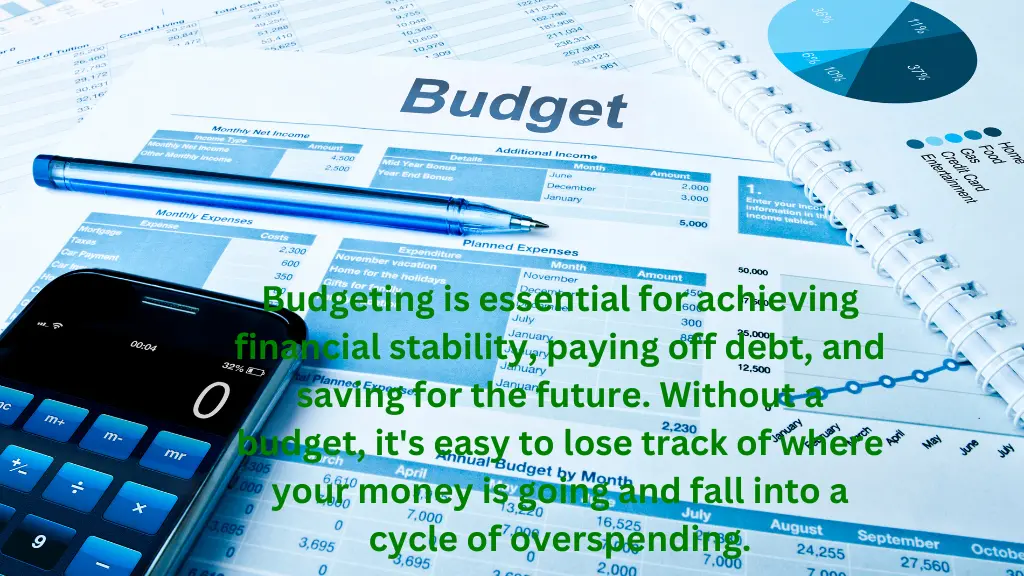“What’s Your Budget?” is a question that often strikes fear into the hearts of many. Money management can be a daunting task, but it doesn’t have to be. The key is to approach it with a clear plan and a positive mindset.
Budgeting is essential for achieving financial stability, paying off debt, and saving for the future. Without a budget, it’s easy to lose track of where your money is going and fall into a cycle of overspending.
In this article, we’ll explore practical tips and strategies for creating and sticking to a budget that works for you.

We’ll cover everything from assessing your current financial situation to setting realistic goals and prioritizing your spending.
Whether you’re a budgeting novice or a seasoned pro, this guide will provide valuable insights to help you take control of your finances.
What’s Your Budget?
Your budget is a plan for how you intend to allocate your income towards expenses, savings, and debt repayment over a given period of time.
It involves tracking your income sources, categorizing your expenses into fixed and variable costs, setting financial goals, and intentionally deciding how much money to dedicate to each area of spending.
Creating and sticking to a realistic budget is crucial for achieving financial stability and working towards long-term money management success.
But isn’t budgeting boring and restrictive?
Not at all! Budgeting is all about empowering you to make conscious choices with your money. It’s a tool that gives you control over your finances, allowing you to allocate funds towards the things that truly matter to you – whether that’s paying off debt, saving for a dream vacation, or investing in your future. Think of it as a liberating exercise that frees you from the stress of living paycheck to paycheck.
Where to Start: Calculating Your Income and Expenses
Before you can create a budget, you need to have a clear understanding of your income and expenses. This process may sound tedious, but trust me, it’s the foundation upon which your entire financial plan will be built.
Tracking Your Income
Start by listing all your sources of income, whether it’s your salary, freelance work, or any other streams of revenue. Be as accurate as possible, and don’t forget to account for any bonuses, commissions, or side hustles you may have.
Identifying Your Expenses
Next, it’s time to take a hard look at where your money is going. Grab your bank statements and credit card bills from the past few months and categorize your expenses. Common categories include:
- Housing (rent, mortgage, utilities)
- Transportation (car payments, insurance, gas, public transit)
- Food (groceries, dining out)
- Entertainment (movies, concerts, subscriptions)
- Debt payments (student loans, credit cards)
- Miscellaneous (personal care, gifts, etc.)
Pro Tip:
Use a budgeting app or spreadsheet to track your expenses in real-time. This will give you a clear picture of your spending habits and help you identify areas where you can cut back.
Creating Your Budget
Now that you have a solid understanding of your income and expenses, it’s time to create your budget. This process will involve allocating your income towards various categories based on your priorities and financial goals.
The 50/30/20 Rule
One popular budgeting method is the 50/30/20 rule, which suggests dividing your after-tax income as follows:
- 50% for essential expenses (housing, utilities, groceries, transportation)
- 30% for discretionary spending (entertainment, dining out, hobbies)
- 20% for savings and debt repayment
This rule provides a solid framework, but feel free to adjust the percentages to better suit your personal circumstances.
What if my expenses exceed my income?
If your expenses are higher than your income, you’ll need to make some tough decisions. Start by identifying areas where you can cut back, such as reducing discretionary spending or downsizing your living situation.
If that’s not enough, you may need to explore ways to increase your income through a side hustle or negotiating a raise at work.
Sticking to Your Budget
Creating a budget is only half the battle – the real challenge lies in sticking to it. Here are some tips to help you stay on track:
Automate Your Savings
Set up automatic transfers from your checking account to your savings or investment accounts. This way, you’ll be paying yourself first before you have a chance to spend that money.
Use Cash for Discretionary Spending
Withdraw a set amount of cash each week or month for discretionary expenses like dining out or entertainment. Once the cash is gone, you’ll be forced to pause your spending until the next allotment.
Revisit and Adjust
Your budget is a living document that should be revisited and adjusted as your circumstances change. Review your budget regularly and make adjustments as needed to ensure it continues to align with your goals.
The Power of Budgeting
Budgeting may seem like a daunting task, but it’s truly a game-changer when it comes to achieving financial freedom. By taking control of your money and making conscious choices about how you spend it, you’ll be able to:
- Reduce debt by prioritizing debt repayment in your budget
- Build an emergency fund to protect against unexpected expenses
- Save for major purchases like a down payment on a house or a dream vacation
- Invest for the future by allocating funds towards retirement accounts or other investment vehicles
But won’t budgeting make me feel deprived?
Not at all! Budgeting isn’t about deprivation – it’s about conscious spending. By being intentional with your money, you’ll actually have more freedom to spend on the things that truly matter to you, without the guilt or stress of overspending.
Conclusion
Budgeting is a powerful tool that can transform your relationship with money. By understanding where your money is coming from and where it’s going, you’ll be able to make informed decisions that align with your financial goals. Whether you’re aiming to become debt-free, save for a major purchase, or build a nest egg for retirement, a well-crafted budget will be your compass, guiding you towards financial success.
So, what’s your budget? Take the time to answer that question, and you’ll be well on your way to a life of financial freedom and peace of mind.
CODE IS 3258
Here are some frequently asked questions (FAQs) related to budgeting that could be included in the article:
Frequently Asked Questions
How do I get started with budgeting?
The first step is to track your income and expenses for a month or two to get a clear picture of your spending habits. Once you have this information, you can create a budget by allocating your income towards different categories like housing, transportation, food, and discretionary spending. Apps and spreadsheets can help you stay organized.
What’s the best budgeting method?
There’s no one-size-fits-all approach to budgeting. Popular methods include the 50/30/20 rule (allocating 50% of your income to essentials, 30% to discretionary spending, and 20% to savings/debt repayment) and the envelope system (using cash envelopes for different spending categories). Choose a method that works best for your lifestyle and financial goals.
How can I stick to my budget?
Automate your savings by setting up automatic transfers to your savings or investment accounts. Use cash for discretionary spending to avoid overspending. And remember to revisit and adjust your budget as your circumstances change.
What if I have irregular or variable income?
If your income fluctuates, you’ll need to be more diligent about tracking your earnings and expenses. Consider budgeting based on your lowest expected income and allocating any additional income towards savings or debt repayment.
How do I handle unexpected expenses?
Build an emergency fund by allocating a portion of your budget towards savings each month. This fund should cover 3-6 months’ worth of living expenses in case of job loss, medical emergencies, or other unexpected costs.
Can I still have fun on a budget?
Absolutely! Budgeting isn’t about deprivation – it’s about making conscious choices with your money. By allocating funds towards discretionary spending, you can still enjoy activities like dining out, entertainment, and hobbies without going into debt.






2 thoughts on “What’s Your Budget? A Simple Guide to Money Management”